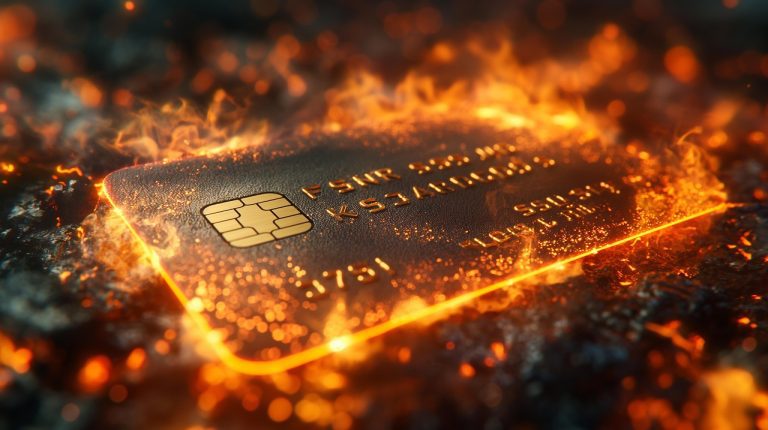Credit card debt can feel like a weight around your shoulders. The high interest rates make it tough to clear, and missing payments can damage your credit score.
But don’t worry—there’s a way to pay it off while keeping your credit score intact.
Here’s how to tackle credit card debt without wrecking your financial future.
1. Stop adding to your credit card debt
It sounds obvious, but the first step is to stop using your credit cards for everyday spending.
If you can, switch to using cash, a debit card, or a prepaid card for your daily expenses.
This prevents your debt from growing while you work on paying it off.
2. Create a budget that works
A realistic budget will help you see where your money is going.
Start by listing your income and essential expenses like rent, bills, and groceries.
Identify areas where you can cut back—subscriptions, takeaways, and impulse purchases can add up.
Any extra money should go towards clearing your debt.
3. Make more than the minimum payment
Paying only the minimum keeps you stuck in a cycle of debt.
Try to pay as much as you can each month, even if it’s just an extra £20 or £50.
This reduces the interest you pay over time and clears your balance faster.
4. Use the snowball or avalanche method
Two popular strategies can help you clear your debt efficiently:
- Snowball method: Pay off your smallest debts first while making minimum payments on the rest. Once a debt is cleared, move to the next smallest.
- Avalanche method: Focus on paying off the highest-interest debt first while maintaining minimum payments on the others. This saves you more money in interest over time.
5. Consider a balance transfer credit card
If you have a good credit score, you might qualify for a 0% interest balance transfer card.
These allow you to move your existing debt onto a new card and pay it off without interest for a set period.
Just make sure to clear the balance before the 0% period ends, or you’ll be hit with high interest rates again.
6. Explore a debt consolidation loan
A personal loan with a lower interest rate can help you consolidate multiple debts into one monthly payment.
This can make your repayments more manageable and reduce the overall interest you pay.
But be cautious—only take out a consolidation loan if it genuinely lowers your costs and doesn’t extend your debt for too long.
7. Speak to your credit card company
If you’re struggling to keep up with payments, call your credit card provider.
Many lenders offer temporary relief, such as reduced interest rates or payment plans.
It’s always better to communicate with them than to miss payments and harm your credit score.
8. Keep up with payments
Late or missed payments can hurt your credit score. Set up direct debits or calendar reminders to ensure you pay on time.
Even if you can’t pay the full balance, making at least the minimum payment will protect your credit rating.
9. Find ways to boost your income
A side hustle, freelancing, or selling unused items can give you extra cash to throw at your debt.
Even an extra £50 a month can make a big difference in clearing what you owe.
10. Check Your Credit Report Regularly
In the UK, you can check your credit score for free through Experian, Equifax and TransUnion.
Make sure everything is accurate. If you spot errors, report them immediately.
A good credit score will help you get better financial deals in the future.
11. Seek free debt advice
If your debt feels unmanageable, don’t suffer in silence. Charities like StepChange, National Debtline, and Citizens Advice offer free, confidential advice to help you get back on track.
Paying off credit card debt
Paying off credit card debt is possible without hurting your credit score.
Focus on smart strategies—budgeting, paying more than the minimum, using debt repayment methods, and seeking better interest rates.
Stay consistent, and over time, you’ll be debt-free and financially stronger!

